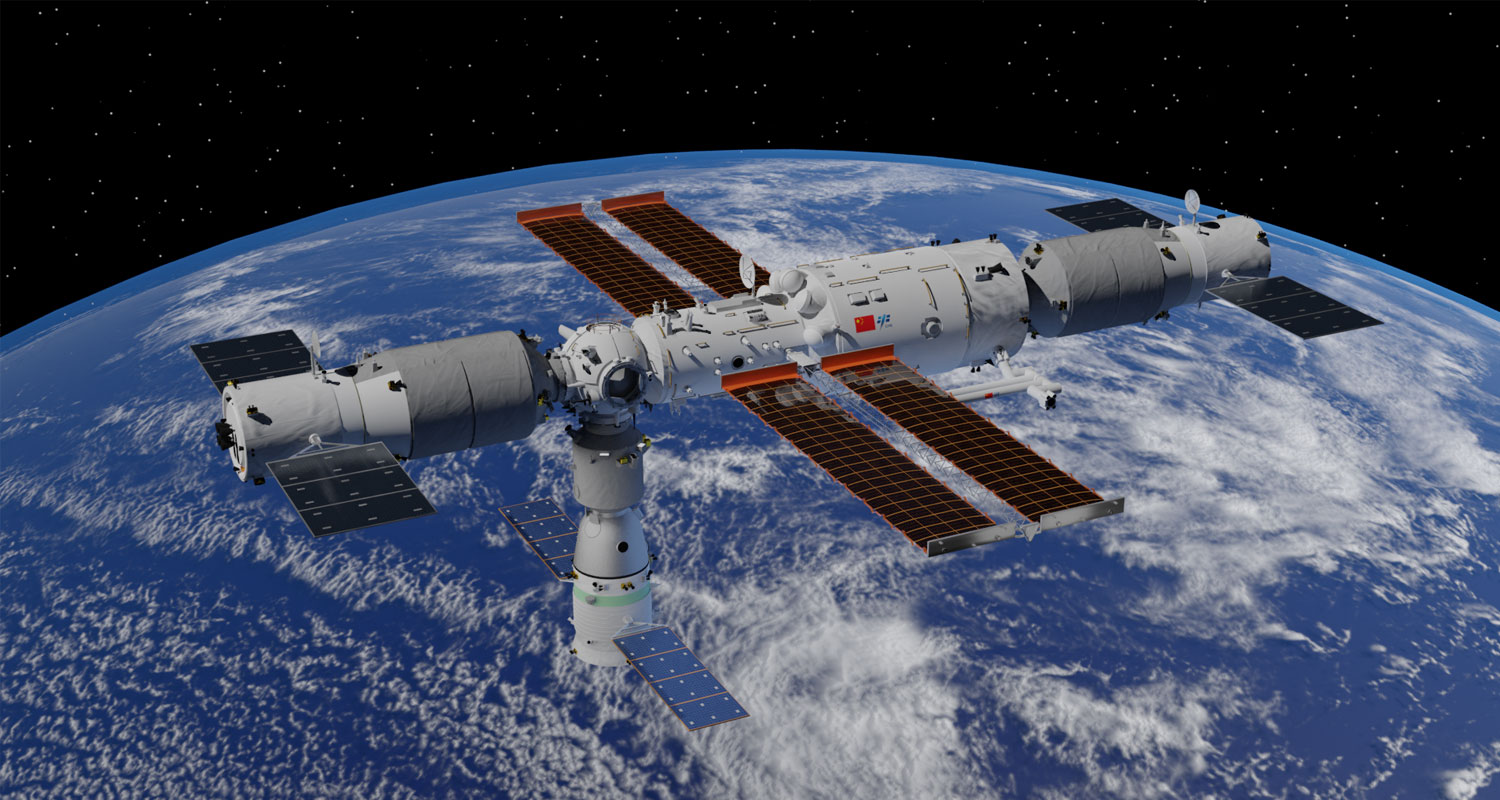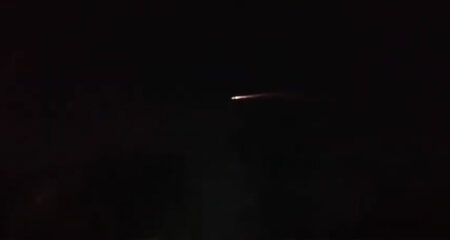
China has released details about the final stages of work on its Tiangong space station, an under-construction orbiter started after the US barred Beijing from participating in the International Space Station.
The Shenzhou XIV, which will carry three astronauts in June for a six-month mission to Tiangong, was moved to the launchpad at the Jiuquan Satellite Launch Centre in Inner Mongolia on Sunday, state media reported, with a launch scheduled “in the coming days”.
Following that mission, China will launch one of the station’s lab components in July and the second in October, the official China Daily reported on Sunday.
“After the space labs, the Tianzhou 5 cargo craft and the Shenzhou XV crew are scheduled to arrive at the massive orbiting outpost around the end of the year,” according to the China Daily report.
Last week, China released a new, high-definition image of Tiangong, which is in orbit around 400km above the Earth.
Once Tiangong is complete, China will be the only country to operate a space station of its own, adding to other accomplishments such as landing on Mars last year and on the far side of the moon in 2019.
Under President Xi Jinping, China has increased efforts to match the US as the dominant power in space, teaming up with Russia on a proposed lunar research station and opposing the Washington-backed Artemis Accords, which are intended to help govern future space activity such as mining on the moon.
‘Space-based Nato’
Chinese state media has criticised the accords as an effort to create a space-based Nato.
So far, though, the US is winning more countries over to its vision for space. Colombia became the 19th country to endorse its vision for space governance, signing the accords on 10 May.
While China has released images of the station in the past, the new one offers online viewers a better chance to hone in on specific parts. It provides a closer look at details such as the green stripes wrapping around several cylinders, the orange and black solar panels and the Chinese flags on the exterior.
The cabin will have capacity for six people, who’ll be able to occupy more than 110 cubic metres of activity space, according to the official People’s Daily. There will also be two exit hatches for astronauts, and one for cargo.
Zhurong, the rover that China landed on Mars last year, has temporarily gone into dormancy because of a dust storm, according to state media, citing the China National Space Administration, which predicted the rover would resume operations around December. — Bruce Einhorn and Judy Wang, (c) 2022 Bloomberg LP




